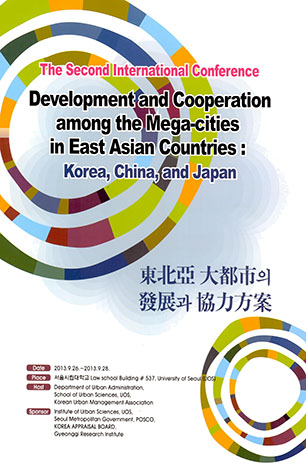지원사업
학술연구/단체지원/교육 등 연구자 활동을 지속하도록 DBpia가 지원하고 있어요.
커뮤니티
연구자들이 자신의 연구와 전문성을 널리 알리고, 새로운 협력의 기회를 만들 수 있는 네트워킹 공간이에요.

비밀번호 변경 안내
비밀번호를 변경하신 지 90일 이상 지났습니다.
개인정보 보호를 위해 비밀번호를 변경해 주세요.
도서관을 통해 DBpia에 방문하면
SNS 로그인이 제한됩니다.
학술연구/단체지원/교육 등 연구자 활동을 지속하도록 DBpia가 지원하고 있어요.
연구자들이 자신의 연구와 전문성을 널리 알리고, 새로운 협력의 기회를 만들 수 있는 네트워킹 공간이에요.
이용수

등록된 정보가 없습니다.
Chun soo Ko
소속기관 한국도시행정학회
주요연구분야 사회과학 > 행정학
Eui young Shon
소속기관 한국도시행정학회
주요연구분야 사회과학 > 행정학
광고 및 욕설, 인신공격, 비하 표현이 들어있는 리뷰 작성으로 다른 회원님들로부터 연이은 신고를 받으셨습니다.이로 인해 회원님께서는 리뷰작성 권한이 제한되었습니다.
0